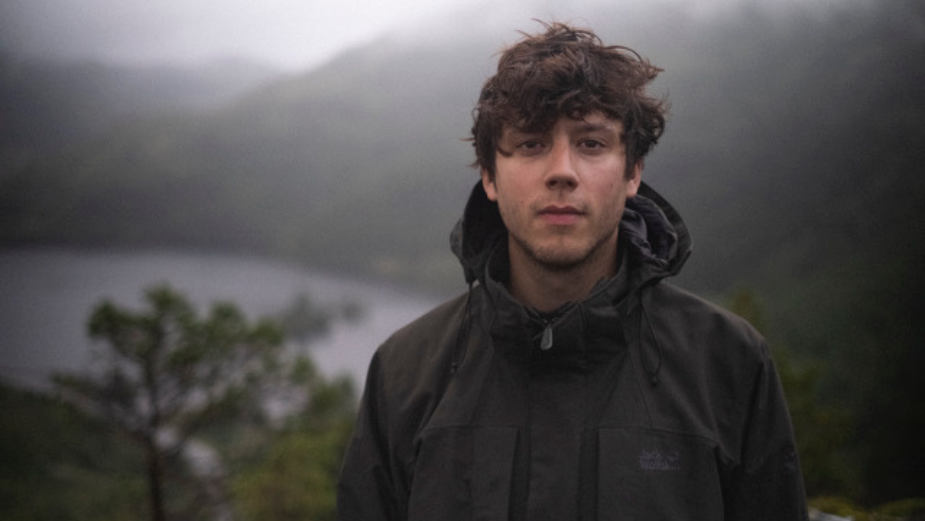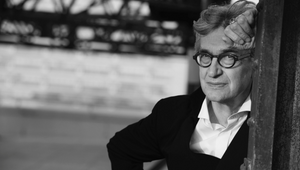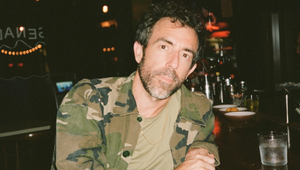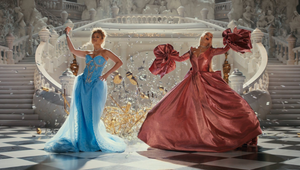
Alexander Kühn On Loving 'Rule-Less' Filmmaking and the Formality of Music

2020 marked something of a breakout year for Alexander Kühn. ‘Josh and Jacob’, a warm and earnest two and a half-minute film, won significant acclaim for the emotive way it charted the lives of two childhood friends as they navigated adversity, love, and fate together. The film swept up awards from Berlin to New York, winning 23 in total.
Those familiar with Alexander, a young German director studying at film school, will be unsurprised by such success. Following on from the success of ‘Josh and Jacob’, as well as other lauded projects such as the moving ‘Key Moment’, Alexander has recently signed for the production powerhouse RadicalMedia - all whilst still in film school.
Next up, his sights were set on a new project thematically grounded in the space between life and death entitled ‘Pokerface’, in collaboration with the charity Nacoa - and recently scooped a Silver Screen in the Passion Project category at the Cannes Young Director Awards, up against 19 competitors. That’s in addition to a shortlist nomination at this year’s Berlin Commercial Awards. For Alexander, the awards train is showing no signs of slowing down.
Alexander’s love of film and storytelling is entwined with his appreciation for music. To chart his creative journey so far and unpick his unique process, LBB spoke with Alexander…
Q> Hi, Alex! Thanks for taking the time to chat with us. I understand you’re a deeply creative person who has an interest in music outside of filmmaking. So when - and why - did you first decide to pursue the moving image and become a director?
Alex Kühn> Hey, thanks for having me! I first got into cinematography before I started my piano studies, so whilst I was studying I worked on a few different projects as a DOP. In the beginning, it was mostly musicians or orchestras that I worked with - so music and filmmaking were entwined for me at an early stage.
Later on, I shot two short films that got me in contact with more and more filmmakers. Those films were ‘The Curtain’ and ‘In a Mirror’, directed by the brilliant Orson Hentschel (a multi-talented artist who is currently touring the world as a DJ!).
Seeing shorts from YDA and from film schools made me realise how powerful storytelling can be. From that point on, I strove to create my own stories.
Q> So when it comes to your relationship with music, in what ways does that influence your filmmaking? And, by the same token, do you find that your work in film influences your music?
Alex> I think that music influences every filmmaker, and every artist. It is one of the most powerful tools for controlling emotions, and one of the hardest to truly control. It’s universal.
What I find interesting when comparing how I learned playing the piano to how I am learning to tell stories, is that filmmaking is such a lawless and unruly wild west. What’s not to love?! When you look at a 30 year-old pianist who has been studying every day for two decades it is very easy to visibly see what they have learned. There are certain pieces that you will simply never be able to play unless you put years of hard practice into them. These kinds of rules do not apply to filmmaking at all - film embraces chaos, and music offers control.
Q> I see you’ve been working with greenscreens and after-effects to illustrate what you see in your mind while you play the piano. Where do you think these images come from, and do they stay with you after you stop playing?
Alex> Those images often change each and every time I play the piano. Sometimes they are there, sometimes they aren’t. When they are, they can really help me to influence the way I play, as they influence what I feel. The same applies for singers and actors I think. You express what you feel. Some can control it better than others.
Q> I’d love to talk about your fantastic ad, ‘Josh and Jacob’. It’s incredibly real and heartfelt - were you drawing on your own experiences at all for this project?
Alex> Yes, I was. It’s a universal truth that our friendships change over the course of time, as we ourselves change. We move to new places, we meet new people, and that changes us. The ‘forever best friends’ who used to live down the road are suddenly hundreds of kilometres away. After moving to the south of Germany for film school, this process of growing apart started to play a significant role in my own friendships. In some cases more than in others. I’m thankful, because that experience pushed me to write Josh & Jacob.
Above: Josh and Jacob, directed by Alexander Kühn.
Q> And, given the deserved acclaim the film won, do you see that as an important piece of work for you in the context of your career?
Alex> I think it is an important piece of work for me, but mostly in the context of how I trust my gut feeling and developing the process by which I decide which stories I should tell.
Q> Let’s talk about your upcoming film ‘Pokerface’, for the charity Nacoa. What first attracted you to the project?
Alex> To begin with, it was just a single moment in time. The moment of looking at a person you love, and wondering for a second if that person is still alive. Originally that was a key visual for the story. It did not make it into the film the way I thought it would, but that’s all just a part of filmmaking.
I found that a lot of people live in-between two worlds just like the protagonist Anthony does. I wanted to juxtapose these worlds as closely as I could.
Above: 'Pokerface' directed by Alexander Kühn.
Q> I understand that a goal of yours has been to pursue ‘character-driven, emotional storytelling’. Is that something you’re looking to explore in Pokerface?
Alex> That’s something which I always try to do. I think you need people to talk and interact with each other to really pursue ‘character-driven, emotional storytelling’. In this case the idea was to create a story with as little as possible, given all the limitations we were facing at the time. We only had a few days to prepare and a few hours to shoot! I found it to be a really interesting experiment in just how little you need in order to tell a good story. I love how Miles Jay masters this simplicity in his film ‘Alive’ for Bose. That was a big inspiration for me.
Q> You’ve recently signed on with RadicalMedia - congratulations! What’s exciting you about the future with RM, and are there any particular projects you’re especially keen to try your hand at?
Alex> What I love about RadicalMedia is how diverse their range of work is. Looking at their directors, I see mostly artists in the purest sense. I recently had the chance to work with DOP Oliver Millar, which was exactly like working alongside an artist, not with a director of photography. And I mean that in the best way possible! Looking at the different shorts, features, series and shows that RadicalMedia is involved in inspires me, and I’m looking forward to playing my part in it.
Q> Finally, you’re currently still in film school - given the challenges the global industry has been facing over the past year, how have you been so creatively prolific?! And how are you going to keep it up?
Alex> I don’t really think about that to be honest. I never take “the industry” too seriously and I never will. Sometimes it's good to see your non-filmmaking friends and be reminded of how unimportant our industry is, in a way. In fact, maybe that is precisely what helps me stay consistent!
Pokerface was created in collaboration with the charity Nacoa. Nacoa provides information, advice and support for everyone affected by a parent’s drinking. To find out more about their work, click here.
You can view more of Alex’s work by watching his reel here.













